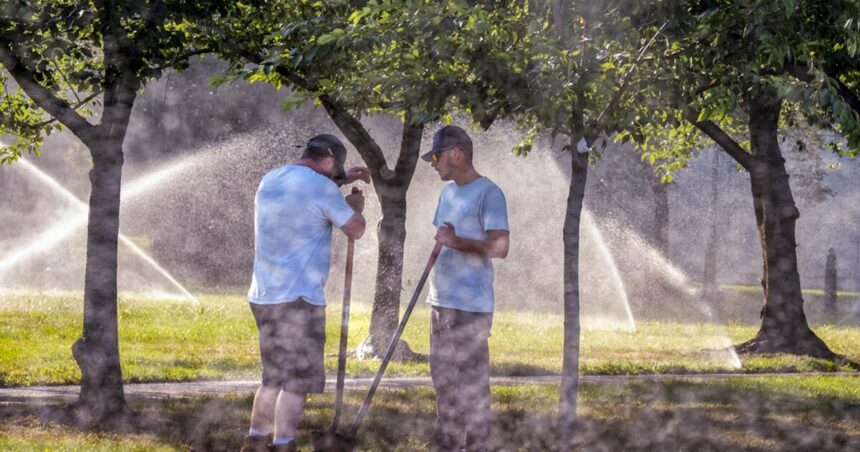A scorching heat wave swept through the Midwest to New England on Wednesday, causing millions of people to swelter on the Juneteenth holiday. This included areas like northern Maine, where such intense conditions are rare this early in the year.
Caribou, Maine, located just 10 miles from the Canadian border, experienced a record-breaking heat index of 103 degrees Fahrenheit. The region was under a heat advisory until Wednesday evening, with temperatures in Caribou surpassing those in Miami: 94 degrees compared to 89, according to the National Weather Service.
Residents in the area expressed astonishment at the unusually high temperatures and humidity for June, with some mentioning that temperatures in the 70s and 80s were more typical for this time of year.
“I’ve only seen it this hot in June maybe once before,” said Hannah Embelton, 22, a server at an ice cream store in Caribou. She noted that customers were avoiding soft serve options because they were melting too quickly.
Meanwhile, at Moose River Campground, owner Lisa Hall struggled with the heat as she worked on fixing a cabin faucet. She remarked that such extreme conditions were usually seen in mid-July or early August.
The heat wave was forecasted to peak in the eastern Great Lakes and New England on Wednesday and Thursday, and in the Ohio Valley and mid-Atlantic on Friday and Saturday. Heat index readings were expected to reach 100 to 105 degrees in many locations.
Meteorologist Kyle Pederson from the National Weather Service in Boston explained that a ridge of upper level high pressure was bringing the heat from the southern United States to the region, resulting in temperatures in the mid- to upper 90s and heat index values exceeding 100.
Officials advised people to limit outdoor activities, check in on vulnerable individuals, and seek relief in air conditioned places. In response to the heat, New York State parks offered free admission on Wednesday and Thursday, with select pools and beaches opening early for swimming.
The oppressive heat wave also impacted wildlife and led to wildfires in California. A study revealed that climate change is causing heat waves to last longer and affect more people.
Despite the challenges posed by the extreme weather, communities were finding ways to cope and adapt during this period of intense heat.





